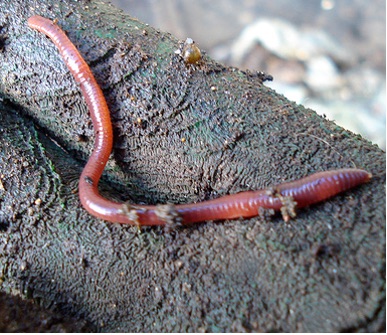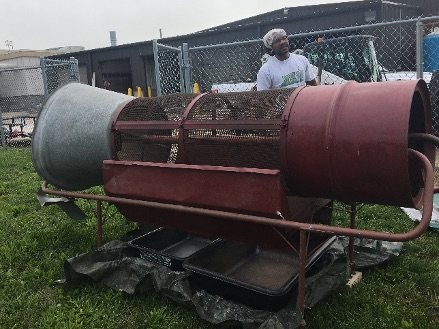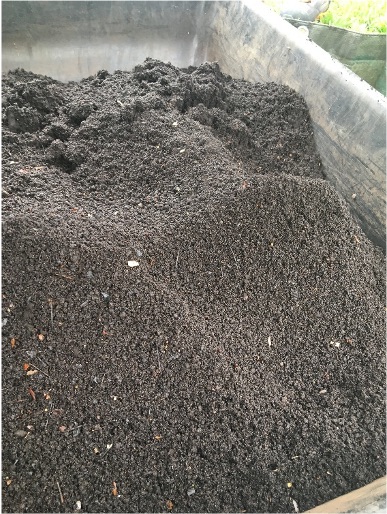You might call it a real down-to-earth program at Washtenaw Community College.
 One of the little-known facts about WCC is that it has an organic waste management
program that uses a worm bed (vermicomposting) to convert organic waste to a usable
product (worm castings).
One of the little-known facts about WCC is that it has an organic waste management
program that uses a worm bed (vermicomposting) to convert organic waste to a usable
product (worm castings).
For Earth Day 2021, Becky Andrews, the college’s Recycling Operations Manager, gave a virtual video tour of the WCC vermicomposting system.
Daily collections of organic materials occur across campus and historically many people and departments participate in this program, including food service providers in the Student Center, such as Subway and Java Spot, and WCC employees who have organic waste caddies in their break rooms.
The bed contains Red Wiggler earthworms (Eisenia Fetida). These hardy worms reproduce quickly and can eat more than their own weight in food each day. They are able to survive well in a variety of climates and they can eat just about anything organic. Like us though, certain foods just don't agree with them, Therefore, they are best avoided. At WCC, they are fed:
- Fruits
- Vegetables
- Coffee Grounds
- Tea Bags
- Egg Shells
Once the worms have done their work and all the food residue is converted to castings, the material can be removed from the bed and put through a trommel. The trommel separates the material into three grades: fine, medium, and coarse. It also separates the worms from the castings so they can be returned to the pit and restart the process.
If you’d like to know more about the composting system, contact Becky Andrews at [email protected].

Red Wiggler (Eisenia Fetida)

Trommel Screener

Fine Castings
